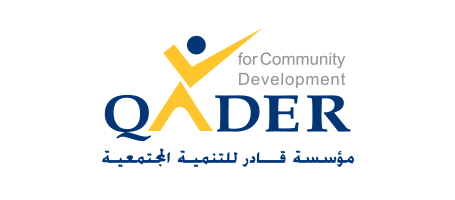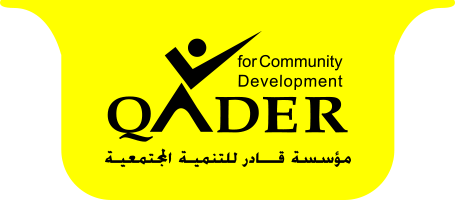Position Paper Issued by Palestinian Human Rights and Civil Society Organizations Regarding the Approval of the National Mechanism for Preventing Torture

Palestinian human rights and civil society organizations have followed the establishment of the National Mechanism for the Prevention of Torture since the State of Palestine’s ratification of the Optional Protocol to the Convention Against Torture in 2017. Over the past four years, these organizations have engaged in dialogue with the official government team regarding the implementation of Palestine’s obligations under the protocol, specifically regarding the creation of a national mechanism for the prevention of torture. During this period, numerous papers and proposals were presented, which resulted in a project aligned with the protocol and its guidelines for establishing national prevention mechanisms. This includes ensuring the neutrality and independence of such mechanisms from the executive branch, as well as their financial and institutional independence, and guaranteeing the personal independence of their members, while ensuring the provision of necessary financial resources.
However, despite significant delays in fulfilling Palestine’s commitment to establish the national mechanism for the prevention of torture, civil society organizations and human rights groups were surprised by the issuance of Law No. (25) of 2022 regarding the National Commission Against Torture. This law violates many of the key principles that had been agreed upon during the dialogue between these organizations and the government team tasked with preparing the national prevention mechanism. It also contradicts Palestine’s obligations under the protocol and its guidelines for establishing national mechanisms, reinforcing the executive authority's ongoing tendency to seize and control national bodies, thus decline their ability to perform their tasks with independence and neutrality. This law demonstrates that the mechanism, according to the law, would fail the test of independence and neutrality from its inception, effectively becoming a formal governmental body that serves to continue the suffering and violations of victims of torture and ill-treatment.
The organizations believe that the law, in many of its provisions, dismantles the independence principles of the mechanism. The National Commission for Preventing Torture is deemed a state institution and governmental body, subject to all relevant laws and regulations governing official institutions. The law also classifies the head, deputy, and employees of the mechanism as official civil service employees, subject to civil service law. Additionally, procurement and contracting are governed by public procurement law, which makes the mechanism a fully governmental body. Furthermore, the method for appointing the members of the mechanism by the President, based on the Cabinet's recommendation, violates Palestine’s commitments under the Optional Protocol, which requires the highest standards of transparency and independence when selecting members, akin to the selection of national human rights commissions. Several other violations compromise the independence, neutrality, and objectivity of the mechanism.
The organizations argue that the issuance of the law at this time, just two months before the United Nations Committee Against Torture will discuss Palestine’s initial report on its obligations under the Convention Against Torture and its Optional Protocol, is an attempt to improve Palestine’s image before the committee. However, the law, which is contrary to international standards and Palestine’s obligations, will negatively impact Palestine’s image before the UN Committee Against Torture and other treaty bodies and international agencies.
The organizations reaffirm that the issuance of this law is a continuation of a pattern of issuing laws that conflict with the amended Basic Law. They assert that the establishment of the national mechanism could have been achieved through other means rather than by decree. The organizations point out that the issuance of this law, contrary to the outcomes of dialogue between civil society organizations and the government team, has become a recurring pattern, making dialogue a mere formal procedure used by the government to enhance its image. This necessitates that the organizations reconsider their participation in similar dialogues to safeguard their time and resources and prevent their involvement from being used to beautify the official narrative.
The organizations reject this law and demand its cancellation. They call for a return to the outcomes of the dialogue that had been agreed upon regarding the establishment of the national mechanism for the prevention of torture. They urge human rights organizations, legal and social figures to refrain from joining the mechanism in its current form, and they will include detailed observations on the law’s violations of Palestine’s commitments under the Convention Against Torture and its Optional Protocol in their reports to the UN Committee Against Torture.
Signed organizations:
- Palestinian Human Rights Organizations Council
- Palestinian Coalition Against Torture
- Economic and Social Rights Coalition "Adalah"
- Forum Against Violence Against Women
- Al-Haq Foundation
- Jerusalem Legal Aid and Human Rights Center
- Addameer Prisoner Support and Human Rights Association
- Al-Mizan Center for Human Rights
- Defense for Children International – Palestine
- The Arab Center for the Development of the Rule of Law and Integrity (Hurryyat)
- Palestinian Center for Human Rights
- Palestinian Commission for the Independence of the Judiciary and the Rule of Law "Independence"
- Palestinian Center for the Independence of the Legal Profession and the Judiciary "Musa"
- Coalition for Integrity and Accountability - Aman
- Miftah Foundation
- Human Rights Media Center "Shams"
- Bisan Center for Research and Development
- Stars of Hope Association
- Torture Victims Rehabilitation Center
- Economic and Social Policy Monitor
- Women Affairs Team
- Cooperation Association for Community Development
- Palestinian Association for Women Business Owners – Asala
- QADER for Community Development
- The Popular Art Center

